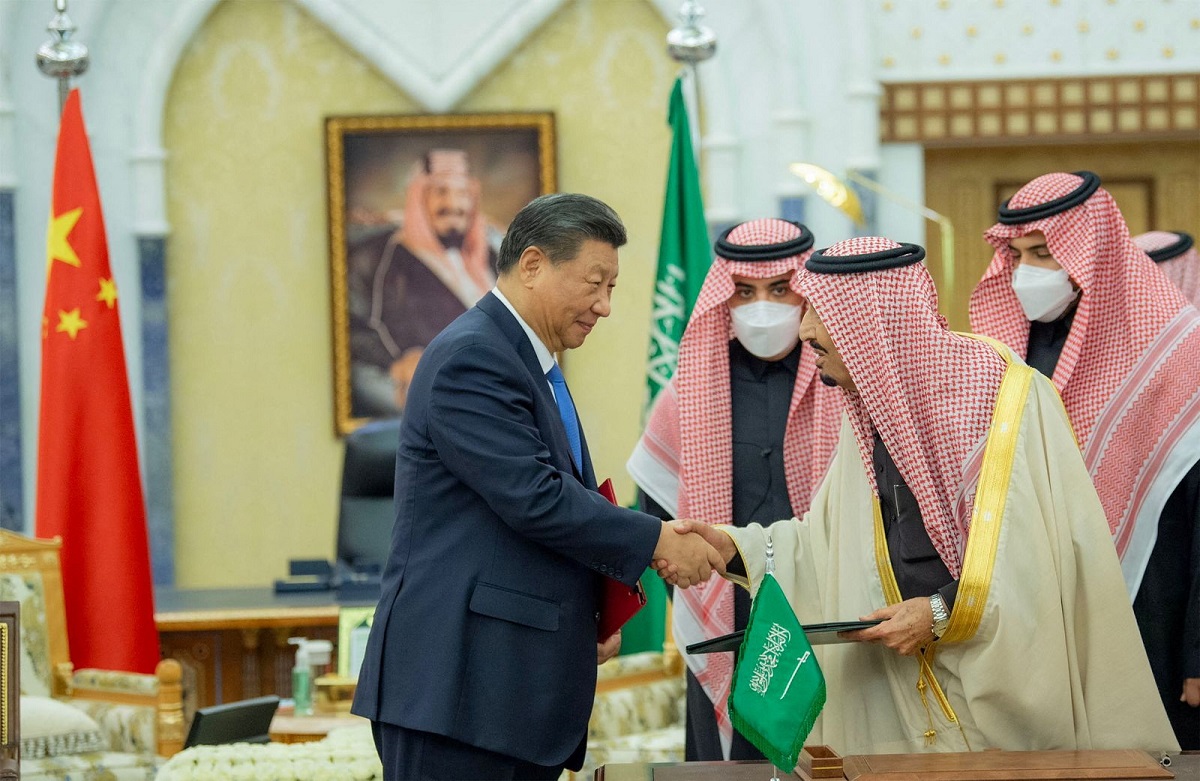Chinese President Xi Jinping and Saudi King Salman signed a series of strategic deals, including one involving Chinese tech giant Huawei, since the official state visit began on Wednesday.
In a joint statement on Friday, the two sides said they “exchanged views regarding ways to reinforce and develop comprehensive strategic partnership relations between the Kingdom and China”.
It stressed the principles of sovereignty and “non-interference”, while affirming the importance of a peaceful solution to the Ukraine conflict.
In a nod to Persian Gulf security concerns over Iran, another oil supplier to China and with whom Beijing has good ties, they agreed on the need to “strengthen joint cooperation to ensure the peaceful nature of Iran’s nuclear programme”, and for Tehran to respect “principles of good-neighbourliness”.
The Chinese leader stated his visit, during which he will meet other Persian Gulf oil producers and attend a wider summit with Arab League countries on Friday, heralded a “new era” in relations.
“China looks forward to working with Saudi Arabia and Arab states to turn the two summits into milestone events in the history of China-Arab relations and China-GCC relations, and bring these relations to new heights,” the foreign ministry cited Xi as saying.
Qatar’s emir, Kuwait’s crown prince, and the presidents of Egypt, Tunisia, Djibouti, Somalia and Mauritania are among rulers attending, alongside leaders and prime ministers of Iraq, Morocco, Algeria, Sudan and Lebanon.
Riyadh reaffirmed its adherence to the “one-China principle”, by which the People’s Republic of China (PRC) is the sole legal government and Taiwan is an inalienable part of China’s territory.
China is determined to forestall Taiwanese independence and bring about the island’s unification with the mainland. Western governments including the United States recognise the PRC as the sole legal government of China, but simultaneously maintain unofficial relations with Taiwan.
In turn, Beijing “affirmed its opposition to any actions that would interfere in the internal affairs of the Kingdom of Saudi Arabia”.
The two sides stressed the importance of stability in world oil markets, the statement added, and agreed to explore investment opportunities in the petrochemicals sector, as well as sources of renewable energy.
China is the world’s largest importer of crude oil, for which it is heavily reliant on Saudi Arabia.
They also welcomed the involvement of Saudi companies in various energy and investment partnerships within the framework of the Belt and Road Initiative, a massive infrastructure project that would stretch from East Asia to Europe that enhances “the Kingdom’s location as a regional center for Chinese companies”.
Beijing has been cementing ties with Persian Gulf states over the past few years, but its foreign ministry this week described Xi’s trip as the “largest-scale diplomatic activity between China and the Arab world” since the PRC was founded.
Saudi Crown Prince Mohammed bin Salman (MbS) is looking at the world’s second-largest economy as a critical partner in his sweeping Vision 2030 agenda and ambitious megaprojects including the futuristic $500bn megacity Neom.
The Saudis are also pushing to diversify their economic and political alliances at a time when relations with their long-term US allies appear roiled by disagreements.
US President Joe Biden travelled to Saudi Arabia in July in an attempt to convince the Saudis to raise oil production and lower gas prices at the pump, despite criticism from lawmakers in Washington over human rights concerns.
The Saudi-led OPEC+ in October agreed to cut oil production by two million barrels, which Biden’s administration viewed as a direct affront ahead of the 2022 midterm elections.
Saudi Arabia and Persian Gulf allies have been defiant in the face of US pressure to break with fellow OPEC+ oil producer Russia over its invasion of Ukraine and to limit dealings with China, as they try to navigate a polarised world order with an eye on national economic and security interests.
